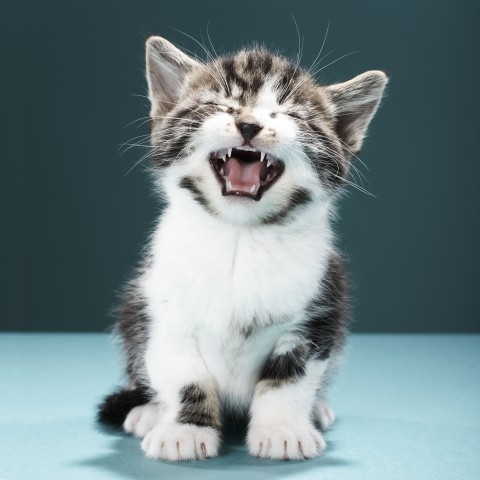Do you have a social media account? Do you want to trigger an interesting conversation with friends online? As the Internet has become an essential part of human life in modern society, I believe most of you will say yes.
Chinese people are one of the most active groups on social media, and it requires some skills to talk to them online. For example, what’s “lol” in Chinese? Being able to properly use 网络流行语 (wǎng luò liú xíng yǔ), or popular Internet slangs in Chinese, can be entertaining and can help to build a closer relationship between individuals online.
Chinese people also like to use many stickers and GIFs, which are known as 表情包 (biǎo qíng bāo), to show their emotions in a vivid way. Further, they’re passionate about developing Chinese Internet slangs.
Of course, it’s not at all difficult to make your Internet experience full of fun in Chinese, as long as you master some of the popular Chinese words and slang with ChineseClass101.com!
Table of Contents
- Common Chinese Social Media
- Common Chinese Number Slangs and Letters
- Common Words
- Popular Slang Sentences
- Conclusion
1. Common Chinese Social Media
- Wechat
This is the most popular social media that Chinese people use. If you want to build a long-term relationship with someone, one of the first things you’ll ask is: “May I have your Wechat?” Wechat has become a part of Chinese people’s life, and in China, you’ll see Chinese people check their Wechat on a daily basis. Be aware that it’s a rather private social media; make sure that you’re eligible enough to ask for someone’s Wechat before you actually do.
- Weibo
Weibo is much like Twitter. It’s a rather public social media, where many celebrities post and interact with fans on a follower-based social media. If you ever want to initiate some word-of-mouth to have a fan-base, Weibo is a good place to start. Of course, you can also use it as a public version of “Wechat” to post as many things as you like.
- QQ
QQ is another popular social media where you can post and chat with your friends. It also offers services like listening to music, playing social games, microblogging, and more.
- TikKok (Douyin)
TikKok has only become popular in China recently. It’s known as 抖音 (dǒu yīn) in Chinese, and is a place where you can create and share your videos. Many celebrities also use it for broadcasting.
Ready to learn Chinese internet slang? Without further ado, here’s our Chinese internet slang list and guide to Chinese slang!
2. Common Chinese Number Slangs and Letters

Let’s start off our list of Chinese words and slang, with number and letter slang. These Chinese characters and slang expressions are commonly used and are perfect to add to your arsenal as you learn Chinese slang!
1- 666
Meaning: Used to compliment people who are good at something.
Usage in a sentence:
In Chinese: 今天游戏你打的可真棒啊,666!
Pinyin: Jīn tiān yóu xì nǐ dǎ de kě zhēn bàng a, liù liù liù!
In English: Today you did so good on the game, excellent!
Additional notes: This Chinese slang is originally from 溜溜溜 (liù liù liù) and 牛牛牛 (niú niú niú), which means “excellent” in Chinese, and the number six has the same (or similar) pronunciation as the word. That’s why people now simply use 666 as a compliment.
2- 520
Meaning: I love you.
Usage in a sentence:
In Chinese: 今天是情人节,我想告诉你520。
Pinyin: Jīn tiān shì qíng rén jiē, wǒ xiǎng gào sù nǐ wǔ èr líng.
In English: Today is Valentine’s Day, and I want to tell you that I love you.

3- 233
Meaning: Laugh out loud; pounding the floor.
Usage in a sentence:
In Chinese: 你看这个笑话是不是很逗,233。
Pinyin: Nǐ kàn zhè gè xiào huà shì bú shì hěn dòu, èr sān sān.
In English: Look how funny this joke is, LOL.
Additional notes: 233 is the code of a GIF emoticon on the social media platform 猫扑 (māo pū). The image depicts a character laughing hard and pounding the floor. As this emoticon became popular, people started to use just its code, 233, to refer to this emoticon.
4- 886
Meaning: Bye bye.
Usage in a sentence:
In Chinese: 我要去写作业. 886,待会聊。
Pinyin: Wǒ yào qù xiě zuò yè le. bā bā liù, dā huì liáo.
In English: I am going to do my homework. Bye bye, we can talk later.
Additional notes: 886 has a similar pronunciation as the word 拜拜咯 (bái bái lo) in Chinese, which means “bye bye.”
3. Common Words
Here’s Chinese slang (internet) that’s sure to come in handy while chatting it up with your Chinese friends!
1- 卖萌
Meaning: To showcase cuteness.
Pinyin: mài méng
Usage in a sentence:
In Chinese: 你看我家猫,又在卖萌了。
Pinyin: Nǐ kàn wǒ jiā māo, yòu zài mài méng le.
In English: Look at my cat, she is showing her cuteness again.
2- 学霸
Meaning: Someone who’s excellent at school and always gets good grades.
Pinyin: xué bà
Usage in a sentence:
In Chinese: 她次次考试都是班里第一名,简直就是个学霸。
Pinyin: Tā cì cì kǎo shì dōu shì bān lǐ dì yī míng, jiǎn zhí jiù shì gè xué bà.
In English: She is always in first place for every exam, so good at school and studying!
3- 土豪
Meaning: Someone who’s extremely rich.
Pinyin: tǔ háo
Usage in a sentence:
In Chinese: 我听说他家有辆私人飞机,可真够土豪的。
Pinyin: Wǒ tīng shuō tā jiā yǒu liàng sī rén fēi jī, kě zhēn gòu tǔ háo de.
In English: I heard that his family owns a private airplane, he is so rich.
4- 小鲜肉
Meaning: Guys who are young and good-looking.
Pinyin: xiǎo xiān ròu
Usage in a sentence:
In Chinese: 听说韩国又出了一个很帅的组合,里面全是小鲜肉!
Pinyin: Tīng shuō hán guó yòu chū le yī gè hěn shuài de zǔ hé, lǐ miàn quán shì xiǎo xiān ròu!
In English: I heard that another K-POP group just debuted, and it’s full of young and cute guys.
Additional notes: The direct translation for 小鲜肉 is little fresh meat, which is a funny way to describe cute young guys.
5- 男神
Meaning: A man who’s considered the person of your dreams.
Pinyin: nán shén
Usage in a sentence:
In Chinese: 今天我又在学校看见男神了,我的心当时扑通扑通地直跳!
Pinyin: Jīn tiān wǒ yòu zài xué xiào kàn jiàn nán shén le, wǒ de xīn dāng shí pū tōng pū tōng de zhí tiào!
In English: I saw the man of my dreams again at school today, and my heart was beating so hard!
Additional notes: This is a term often used by girls who consider male celebrities or their crush as the man of their dreams.
6- 单身狗
Meaning: Someone who’s single.
Pinyin: dān shēn gǒu
Usage in a sentence:
In Chinese: 又是一年光棍节,我还是一只单身狗。
Pinyin: Yòu shì yī nián guāng gùn jié, wǒ hái shì yī zhī dān shēn gǒu.
In English: It’s another Single’s Day, and yet I am still a single dog.
Additional notes: Single’s Day in China is a very special holiday for young people who are single. It’s called 光棍节 (guāng gùn jié) in Chinese, and is on November 11 because the numbers of the date (11/11) are four straight ones that look pretty lonely as they’re standing by themselves.
7- 小姐姐
Meaning: Girls who are young and pretty.
Pinyin: xiǎo jiě jiě
Usage in a sentence:
In Chinese: 我刚才在图书馆看到了一个特别漂亮的小姐姐。
Pinyin: Wǒ gāng cái zài tú shū guǎn kàn dào le yī gè tè bié piào liàng de xiǎo jiě jie.
In English: I just saw a super cute girl at the library.
Additional notes: 小姐姐 in Chinese means “little sister.” It’s a longer version of 小姐, which is similar to “Ms.” in English when addressing young ladies.
8- 尬聊
Meaning: To have an embarrassing conversation.
Pinyin: gà liáo
Usage in a sentence:
In Chinese: 刚才有个男生跟我搭讪,然后我们居然尬聊了整整一个小时。
Pinyin: Gāng cái yǒu gè nán shēng gēn wǒ dā shàn, rán hòu wǒ men jū rán gà liáo le zhěng zhěng yī gè xiǎo shí.
In English: There was a guy who was hitting on me just now; I can’t believe we had an embarrassing conversation for a whole hour.
9- 作死
Meaning: To ask for death; used to describe someone who does things without knowing the actual danger of doing them.
Pinyin: zuò sǐ
Usage in a sentence:
In Chinese: 你明知道明天考试今天还去看电影?真是作死啊。
Pinyin: Nǐ míng zhī dào míng tiān kǎo shì jīn tiān hái qù kàn diàn yǐng? Zhēn shì zuò sǐ a.
In English: You clearly knew that there is an exam tomorrow and you still went to see a movie? You are really asking for death.
4. Popular Slang Sentences

1- 也是醉了
Literal translation: “I am so drunk.”
Pinyin: yě shì zuì le
Meaning: Used to express your inability to help something that is very ridiculous.
Usage in a sentence:
In Chinese: 我男朋友竟然拿我那么贵的香水当清洁剂喷,也是醉了。
Pinyin: Wǒ nán péng yǒu jìng rán ná wǒ nà me guì de xiāng shuǐ dāng qīng jié jì pēn, yě shì zuì le.
In English: I can’t believe my boyfriend sprayed my expensive perfume as an air freshener, I am speechless.
2- 感觉不会再爱了
Literal translation: “I don’t think I’m going to love anyone anymore.”
Pinyin: gǎn jiào bú huì zài ài le
Meaning: To feel desperate and hopeless when something bad happens.
Usage in a sentence:
In Chinese: 等我好不容易攒够钱,我一直想买的衣服居然没货了,感觉不会再爱了。
Pinyin: Děng wǒ hǎo bú róng yì zǎn gòu qián, wǒ yī zhí xiǎng mǎi de yī fú jū rán méi huò le, gǎn jué bú huì zài ài le.
In English: I finally have enough money now, but the clothes I have been wanting to buy are out of stock now, I feel hopeless.
3- 你这是要上天啊
Literal translation: “It seems like you are flying to the sky.”
Pinyin: nǐ zhè shì yào shàng tiān ā
Meaning: Used to describe someone doing something that’s considered crazy and insane.
Usage in a sentence:
In Chinese: 你确定要在期末考试前旅行?你这是要上天啊。
Pinyin: Nǐ què dìng yào zài qī mò kǎo shì qián lǚ xíng? Nǐ zhè shì yào shàng tiān a.
In English: Are you sure you want to travel right before final exams? You’re crazy.
4- 友谊的小船说翻就翻
Literal translation: “The boat of our friendship can be overthrown anytime.”
Pinyin: yǒu yì de xiǎo chuán shuō fān jiù fān
Meaning: Used to make fun of your friends when they do something that makes you feel like he/she isn’t cherishing your friendship.
Usage in a sentence:
In Chinese: 没想到你竟然为了男朋友爽我约,友谊的小船说翻就翻啊。
Pinyin: Méi xiǎng dào nǐ jìng rán wèi le nán péng yǒu shuǎng wǒ yuē, yǒu yì de xiǎo chuán shuō fān jiù fān a.
In English: I can’t believe you are standing me up for your boyfriend, our friendship is so weak.
Additional notes: This slang is for nothing serious, and is usually used between friends who want to make fun of each other. In Chinese culture, people enjoy using irony and sarcasm with their close friends; this is a large aspect of their humor.
5- 惊不惊喜?意不意外?
Literal translation: “Are you surprised? Is it out of your expectation?”
Pinyin: jīng bú jīng xǐ, yì bú yì wài
Meaning: Used to show irony for some surprising news.
Usage in a sentence:
In Chinese: 你看没看今天微博热搜?听说你喜欢的明星公布恋情了!惊不惊喜?意不意外?
Pinyin: Nǐ kàn méi kàn jīn tiān wēi bó rè sōu? Tīng shuō nǐ xǐ huān de míng xīng gōng bù liàn qíng le! Jīng bù jīng xǐ? Yì bú yì wài?
In English: Have you checked out the trend today on Weibo yet? I heard that the celebrity you like has announced that he is having a relationship! Are you surprised? Is it out of your expectation?
6- 整个人都不好了
Literal translation: “I don’t feel good for my whole being.”
Pinyin: zhěng gè rén dōu bù hǎo le
Meaning: Used when you feel upset about something and are on the verge of collapsing.
Usage in a sentence:
In Chinese: 知道我的期末考试成绩之后,我整个人都不好了。
Pinyin: Zhī dào wǒ de qī mò kǎo shì chéng jì zhī hòu, wǒ zhěng gè rén dōu bú hǎo le.
In English: After I got the grades for my final exams, I don’t feel good.
Conclusion
We hope you enjoyed our Chinese slang list. Did these fun Chinese Internet slangs enrich your knowledge of Chinese? Let us know which of these slang terms is your favorite!
It’s time to take yourself to a notch higher in your Chinese skills by visiting ChineseClass101.com, which offers numerous entertaining lessons and articles, all to improve all aspects of your Chinese. Here, you can enjoy more professional and interesting Chinese phrases, as well as Chinese culture, with videos and blog articles. Why not give it a try and see how the adventure goes for you?
Know that your hard work and determination will get you where you want to be with your Chinese. You’ll soon be speaking like a native, and ChineseClass101.com will be here with you for each step of your journey!














